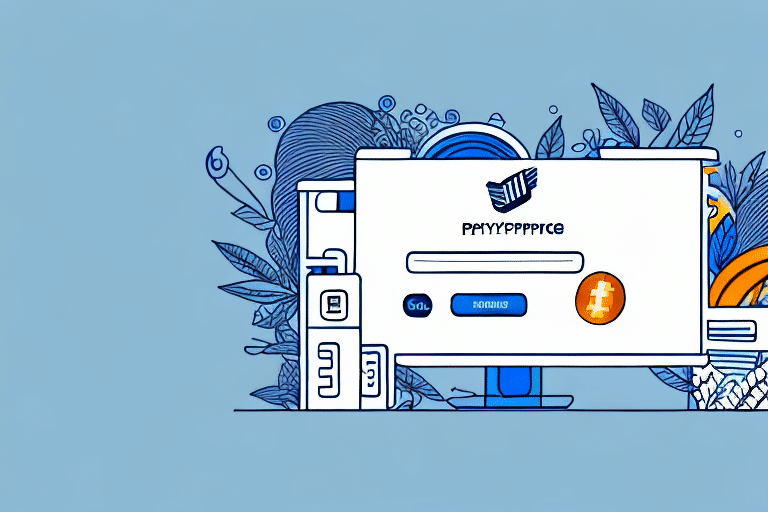The Importance of Payment Processing for CBD Businesses
Payment processing is a critical component for any business, and for CBD companies, it holds particular significance. The burgeoning popularity of CBD products demands a reliable and secure payment processing system to facilitate smooth transactions and foster customer trust. Effective payment processing not only streamlines operations but also ensures compliance with regulatory standards, which are stringent in the CBD industry.
According to a report by Grand View Research, the global CBD market size was valued at USD 4.7 billion in 2021 and is expected to grow at a compound annual growth rate (CAGR) of 21.2% from 2022 to 2030. This rapid growth underscores the necessity for robust payment processing solutions that can handle increased transaction volumes while maintaining security and compliance.
Challenges in CBD Payment Processing
High-Risk Classification
CBD businesses are often classified as high-risk by financial institutions due to the complex legal landscape surrounding cannabis-related products. This classification makes it challenging to secure traditional banking services, compelling businesses to seek specialized payment processors.
Regulatory Compliance
The regulatory environment for CBD is continually evolving, with varying laws at the federal and state levels. Payment processors must navigate these regulations to ensure compliance, which involves rigorous documentation and adherence to specific operational protocols.
Fraud and Chargebacks
High rates of fraud and chargebacks are prevalent in the CBD industry. Payment processors need to implement advanced fraud detection systems and chargeback management strategies to mitigate these risks effectively.
Choosing the Right Payment Processor for Your CBD Business
Specialization in High-Risk Industries
Selecting a payment processor that specializes in high-risk industries, such as CBD, ensures that the provider is familiar with the unique challenges and compliance requirements of the sector.
Experience and Reputation
Investigate the processor’s experience in handling CBD transactions and review testimonials from other CBD businesses. A processor with a solid reputation can offer reliability and support that is crucial for your business operations.
Fee Structures and Pricing
High-risk payment processors often charge higher fees. It is essential to compare fee structures and choose a processor that offers competitive pricing without compromising on service quality.
For more information on selecting a payment processor, refer to the guidelines provided by Business News Daily.
Payment Processing Options for CBD Businesses
Credit and Debit Card Processing
Despite being the most common payment method, credit and debit card processing can be costly for CBD businesses due to higher transaction fees associated with high-risk classifications.
E-Check and ACH Processing
E-Check and ACH payments offer lower fees and are suitable for businesses looking to reduce processing costs. However, they require customers to provide sensitive bank account information.
Mobile Payment Solutions
Mobile payment processing provides convenience for customers who prefer using smartphones for transactions. This option is increasingly popular, especially with the rise of contactless payments post-COVID-19.
Offshore Merchant Accounts
For CBD businesses operating in regions where CBD is not fully legalized, offshore merchant accounts may be necessary. These accounts come with their own set of challenges, including additional regulatory compliance requirements.
Cryptocurrency Payments
Cryptocurrency offers a decentralized payment method that can bypass some of the traditional banking challenges. However, its volatility and regulatory uncertainty make it a less stable option.
Learn more about payment options from Entrepreneur.
Ensuring Secure Transactions in CBD Payment Processing
Implementing SSL Certificates
Secure Socket Layer (SSL) certificates encrypt data transmitted between your website and customers, ensuring that sensitive information remains protected during transactions.
Advanced Fraud Detection
Utilize payment processors that offer advanced fraud detection tools to identify and prevent fraudulent activities proactively. Machine learning algorithms can enhance the accuracy of these systems.
Regular Security Audits
Conduct periodic security audits to identify and address vulnerabilities in your payment processing system. Staying ahead of potential threats is crucial for maintaining transaction security.
Staff Training
Educate your staff on best practices for detecting and preventing fraudulent transactions. Well-trained employees are a vital line of defense against security breaches.
For security best practices, visit the Cybersecurity & Infrastructure Security Agency.
Legal and Regulatory Considerations
Federal and State Regulations
CBD businesses must comply with federal regulations like the Agriculture Improvement Act of 2018, as well as varying state laws. Understanding and adhering to these regulations is essential for lawful operations.
Licensing and Permits
Obtaining and maintaining the necessary licenses and permits is crucial for legal compliance. Failure to do so can result in severe penalties and disrupt business operations.
Partnering with Compliant Payment Processors
Work with payment processors that have a thorough understanding of the legal landscape surrounding CBD. They should offer guidance to help mitigate legal risks and ensure ongoing compliance.
For more on CBD regulations, refer to the FDA's CBD Information.
Future Trends in CBD Payment Processing
Adoption of Cryptocurrency
The integration of cryptocurrency as a payment method is expected to grow, providing more flexibility and reducing reliance on traditional banking systems.
Enhanced Security Measures
Advancements in cybersecurity technologies will lead to more secure payment processing solutions, protecting businesses and customers from evolving threats.
Increased Regulatory Clarity
As the CBD industry matures, clearer regulatory guidelines are anticipated, simplifying compliance for businesses and payment processors alike.
Integration with E-commerce Platforms
Payment processors will increasingly integrate with popular e-commerce platforms, offering seamless solutions that enhance the customer experience.
Stay updated with trends by exploring insights from the Forbes Technology Council.
Conclusion: Key Takeaways for Your CBD Business
Effective payment processing is indispensable for the success and growth of CBD businesses. Key takeaways include:
- Choose Specialized Processors: Partner with payment processors experienced in handling high-risk industries like CBD.
- Ensure Compliance: Maintain adherence to federal and state regulations to avoid legal complications.
- Prioritize Security: Implement robust security measures to protect sensitive customer data and prevent fraud.
- Stay Informed: Keep abreast of industry trends and regulatory changes to adapt your payment processing strategies accordingly.
By focusing on these areas, your CBD business can navigate the complexities of payment processing, ensuring smooth operations and fostering trust with your customers.






















